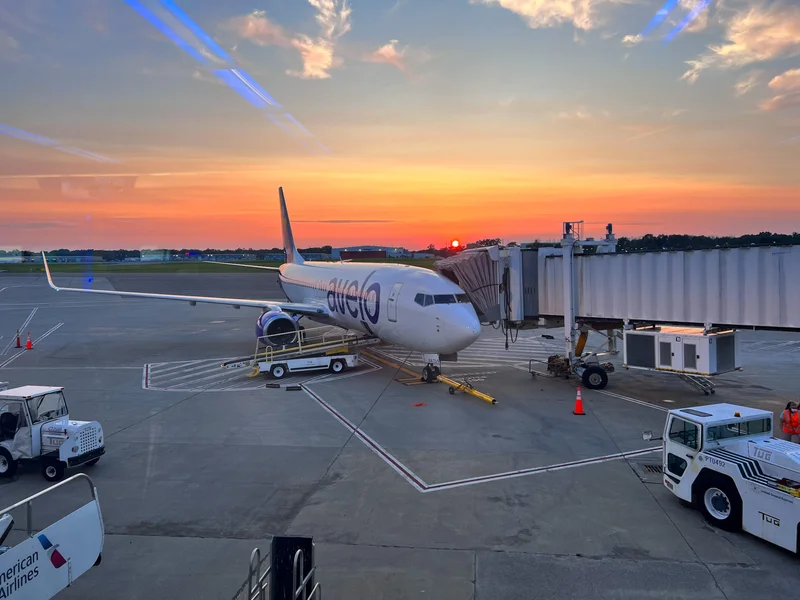XLM Insight | Stellar Lumens News, Price Trends & Guides
XLM Insight | Stellar Lumens News, Price Trends & Guides
Avelo Airlines is pulling out of Bradley International Airport (BDL) at the end of January 2026, a move that's got the Connecticut Airport Authority (CAA) trading accusations and Avelo citing the classic "revenues didn't cover costs" line. The last flights are slated for late January, with Cancun and Punta Cana getting the axe even sooner. Spirit Airlines is also leaving. Customers are promised full refunds, but the bigger question is: what really happened here?
Avelo started service at Bradley in November 2024. That's barely over a year to establish a market, especially with routes like Cancun, Punta Cana, and Montego Bay – destinations that are heavily seasonal. The CAA claims Avelo got a year of free rent. A year rent-free is a massive incentive, so what went wrong?
Let's break it down. Avelo specifically called out revenue not covering costs. Airlines operate on razor-thin margins. Fuel, staff, maintenance, landing fees, and, yes, rent, all eat into the bottom line. If Avelo was indeed operating rent-free for a year, that suggests their revenue projections were wildly off, or their operating costs were higher than anticipated. (Or both, which is entirely possible.)
The CAA is refusing Avelo's request to extend the rent-free period. This suggests the CAA isn't buying Avelo's explanation. They're accusing Avelo of misrepresenting facts and trying to avoid "reasonable fees." What are these "reasonable fees?" Landing fees? Gate fees? We don't have the specifics, but this is where the story gets interesting.
Tisa Rabun from Glastonbury hit the nail on the head when she expressed disappointment, particularly regarding the Montego Bay route. She pointed out the inconvenience of having to travel to LaGuardia, JFK, or Boston for similar flights. That's the real-world impact. But let's be clear: anecdotal disappointment doesn't equal a viable business model.

The CAA is "disappointed and surprised." Surprise is a curious reaction. Did they not monitor Avelo's performance metrics? Did they not have contingency plans in place if Avelo didn't meet expectations? A year is a decent trial period. What data were they looking at, and what did that data tell them?
The CAA's commitment to securing nonstop Jamaica service and "fielding interest from other carriers" is standard PR speak. Every airport authority wants to fill empty slots. The question is, can they find a carrier willing to make those routes profitable where Avelo couldn't?
And this is the part of the analysis that I find genuinely puzzling. Avelo is a relatively new airline, focused on underserved markets. They presumably did their due diligence before launching service from Bradley. Did they miscalculate demand? Did they underestimate the competition from other airports? Or were there factors outside their control, like fluctuating fuel prices or unforeseen maintenance costs, that sunk their business? We need more data to make a conclusive call.
The CAA accusing Avelo of misrepresenting facts is a serious charge. What facts were misrepresented? Passenger projections? Load factors (the percentage of seats filled)? Revenue forecasts? We don't know. But this public spat suggests a significant breakdown in the relationship between the airline and the airport authority. News outlets like Avelo pulls out of Bradley Airport - WFSB are reporting on the airline's decision to pull out of the airport.
The loss of Spirit Airlines next week is also concerning. Is this a coincidence, or is there a larger issue at Bradley International Airport that's making it unattractive to budget carriers? The CAA needs to address this perception quickly.
Avelo's exit from Bradley isn't just about revenue vs. costs. It's a case study in risk assessment, market analysis, and the complex relationship between airlines and airport authorities. Someone, or perhaps everyone, miscalculated. The CAA's claim that Avelo had a year of free rent, coupled with the airline's rapid departure, suggests a deeper problem than simply "revenues didn't cover costs." It points to either a fundamental flaw in Avelo's business model for that specific market or a less-than-transparent operating environment at Bradley. Either way, the passengers are the ones who lose out.